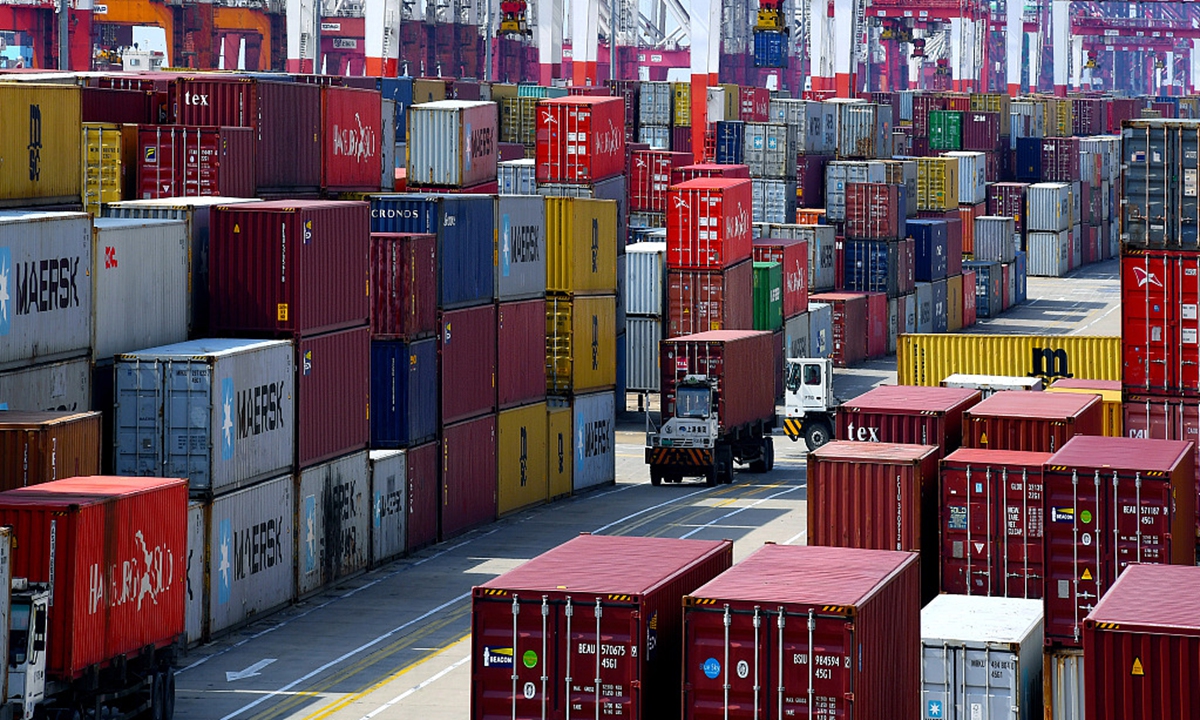
Photo:VCG
China officially applied to join the CPTPP – a revised version of the initial Trans-Pacific Partnership initiated by the US aimed at containing China – on Thursday, just a day after the US, the UK and Australia announced an enhanced trilateral security partnership called AUKUS.
Asked whether China’s decision to join the CPTPP is related to the AUKUS, Zhao Lijian, a spokesperson for the Chinese Foreign Ministry, Zhao said that the two are completely unrelated, but it again shows the different approaches taken by China and the US.
"China is promoting economic cooperation and regional economic integration, while the US is pushing for war and destruction," Zhao said at a press briefing in Beijing.
Zhao stressed that China is a firm advocator of trade freedom, as well as an important participant in Asia-Pacific regional cooperation and economic integration.
"China's application to join the CPTPP again attests to China's determination to expand opening-up and promote regional economic cooperation," Zhao said, adding that China’s joining will help push Asia-Pacific regional economic cooperation, as well as bring benefits to the global economic and trade recovery.
Before officially applying to be a member of the CPTPP, China has made informal contact with other members, and the decision was based comprehensive research and appraisal of the trade pact, according to Zhao.
Signed in 2018, the CPTPP is a free trade agreement between 11 countries, including Australia, Canada, New Zealand and Singapore. The US under former president Donald Trump pulled out of the deal in 2017.
Global Times
